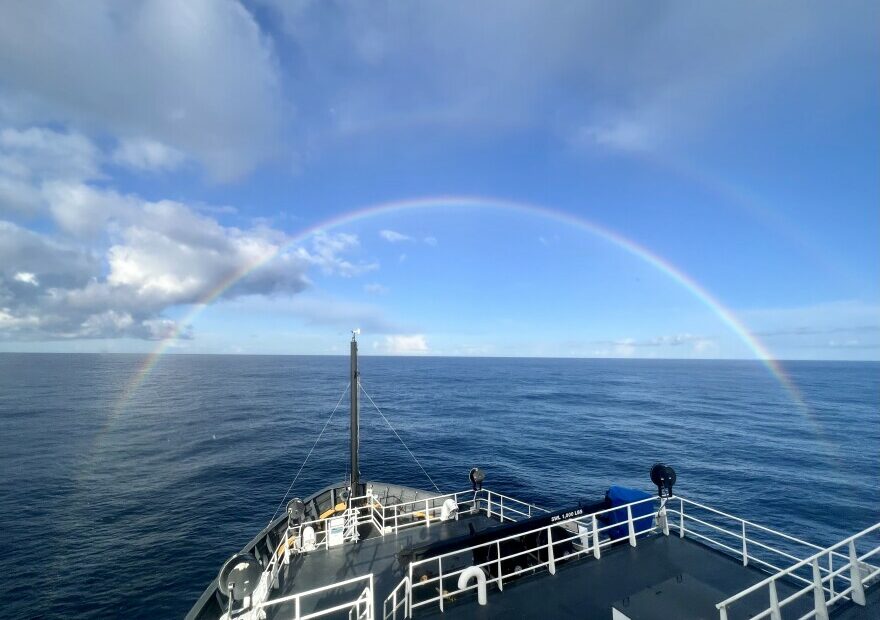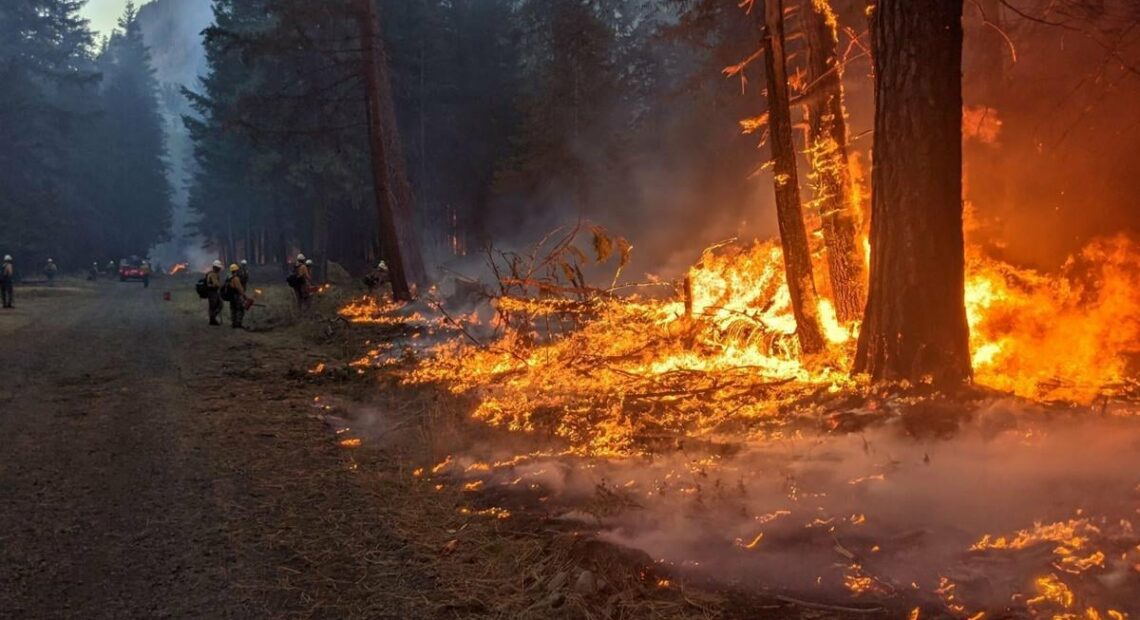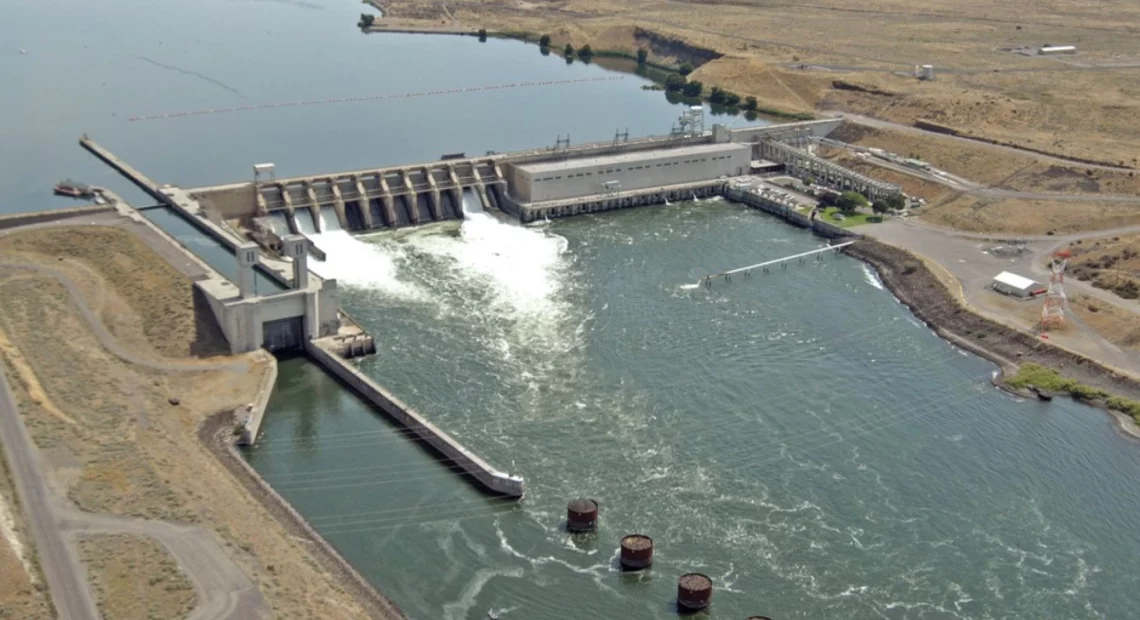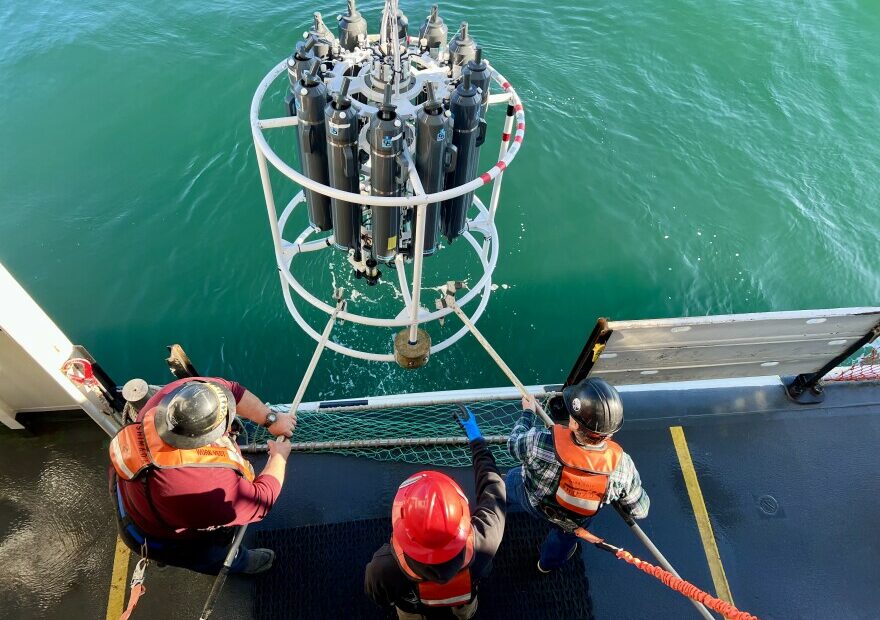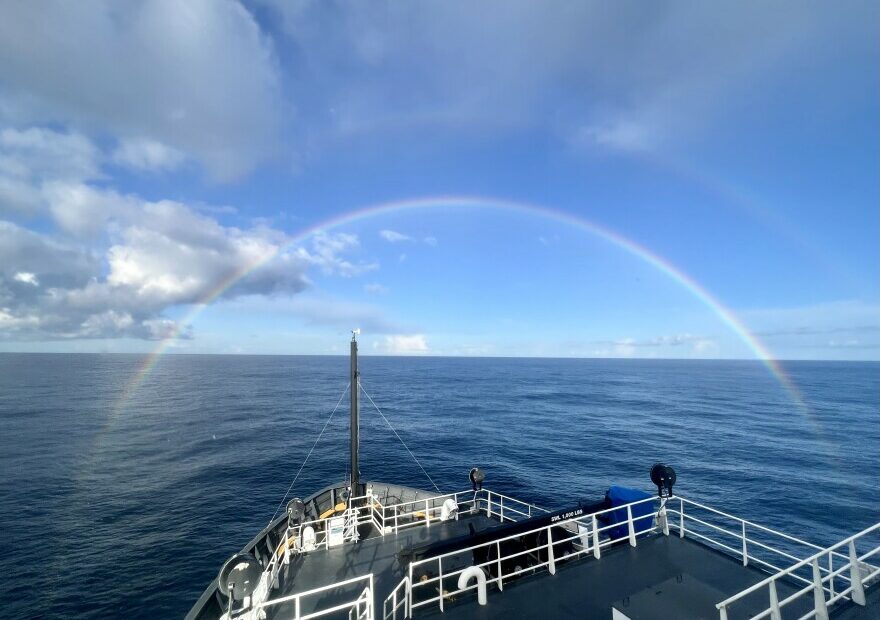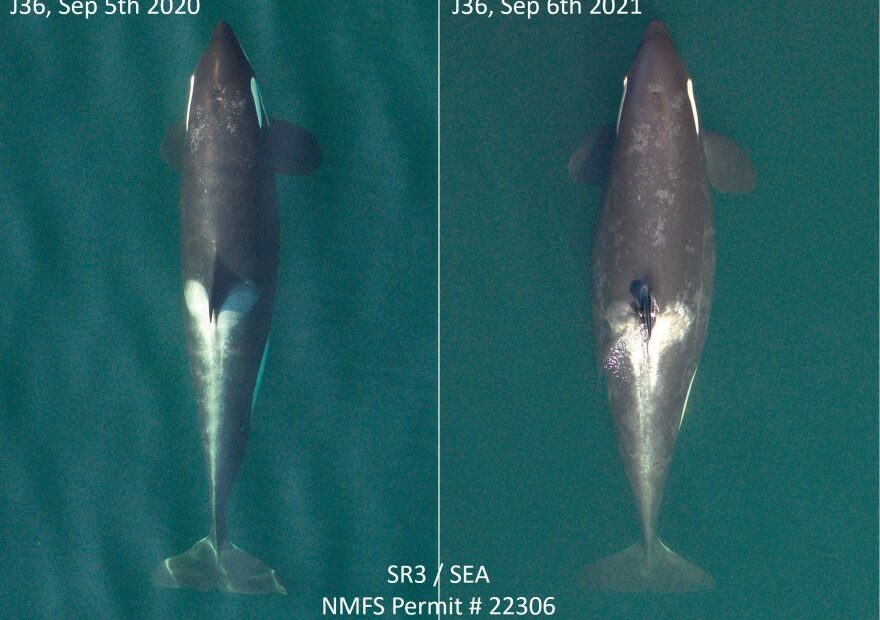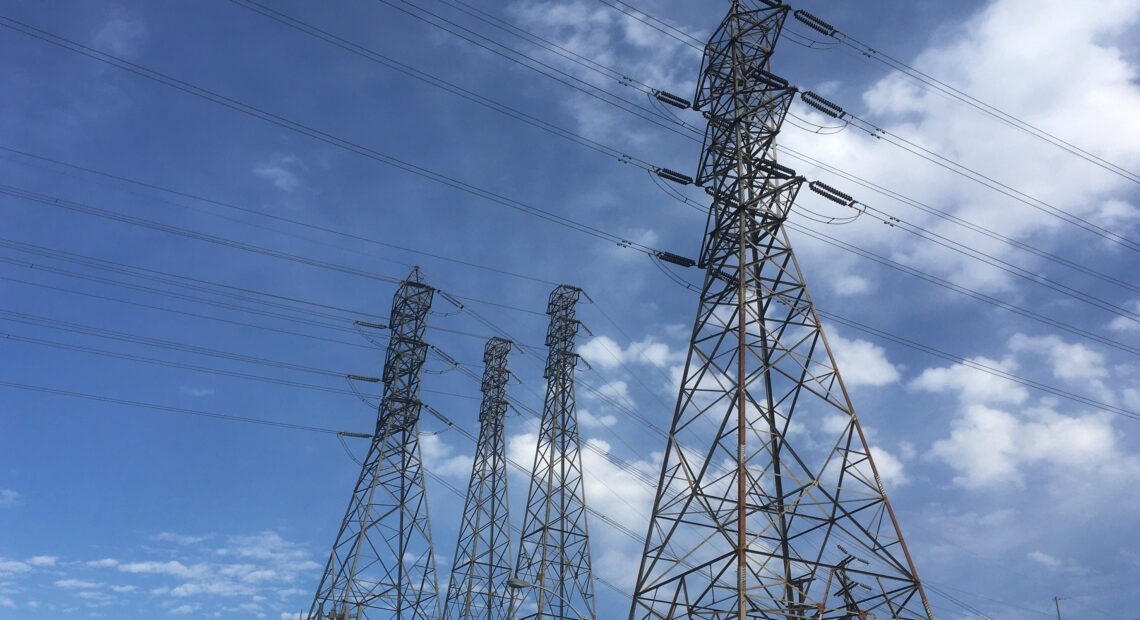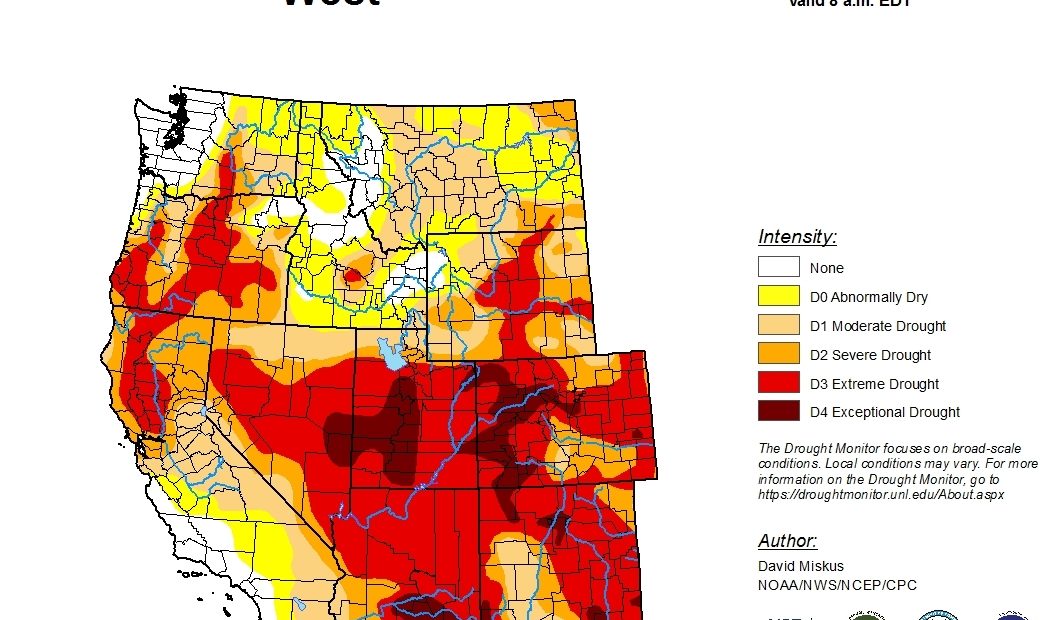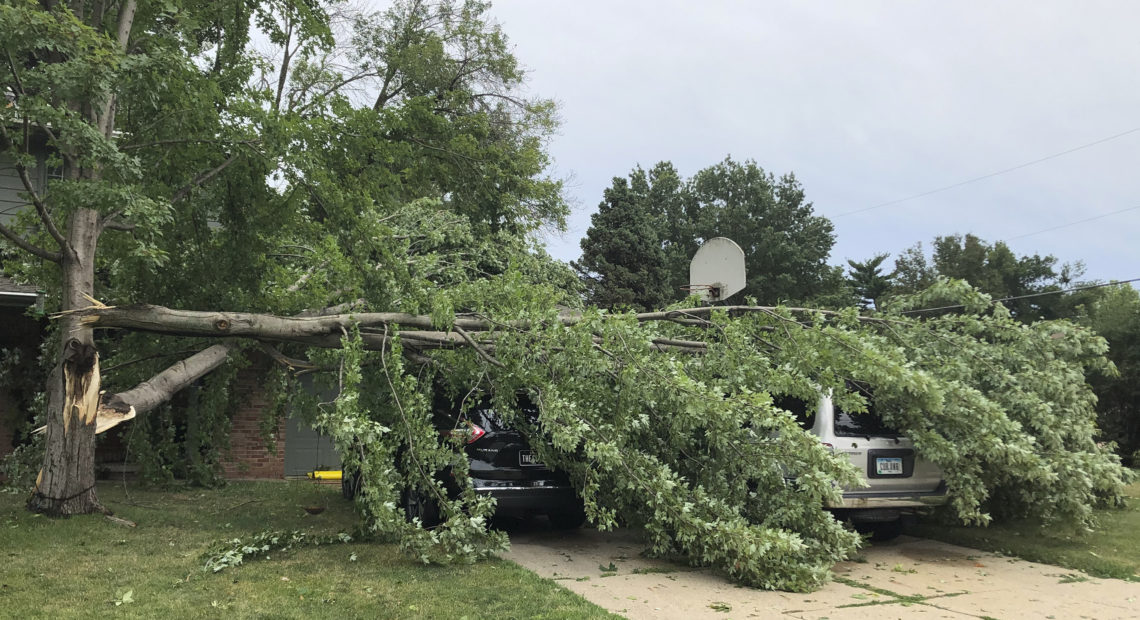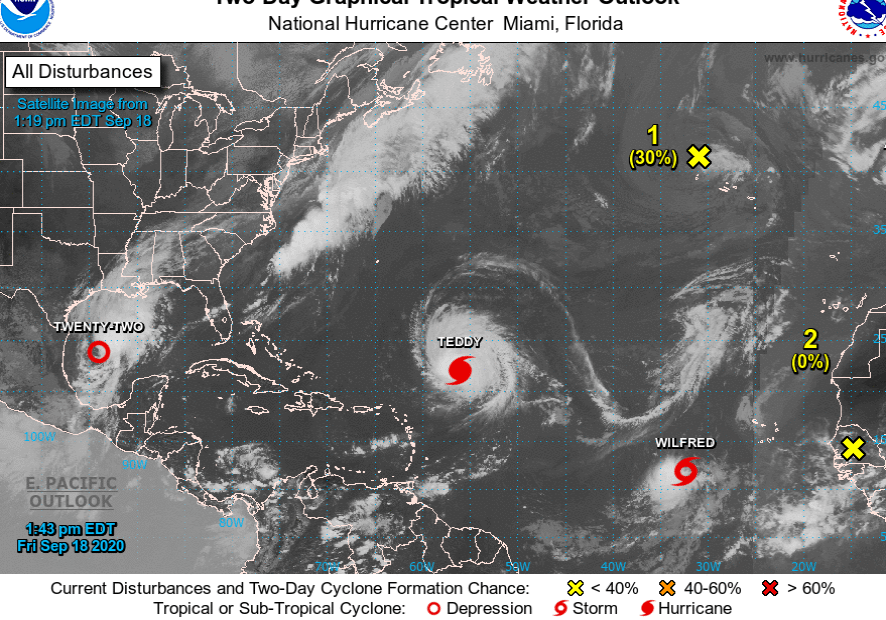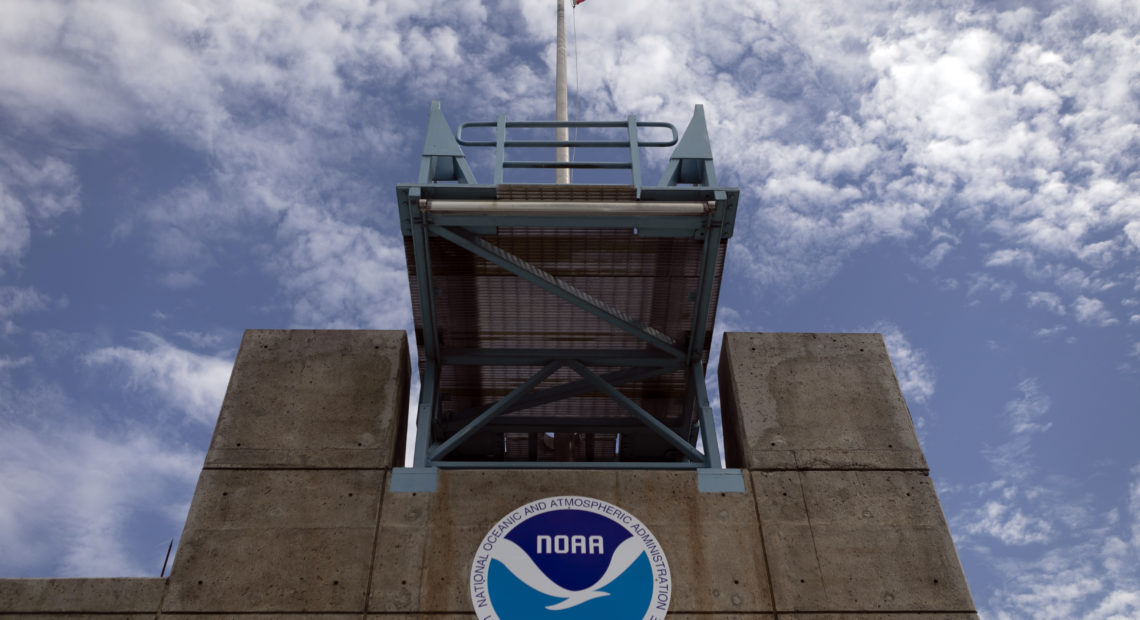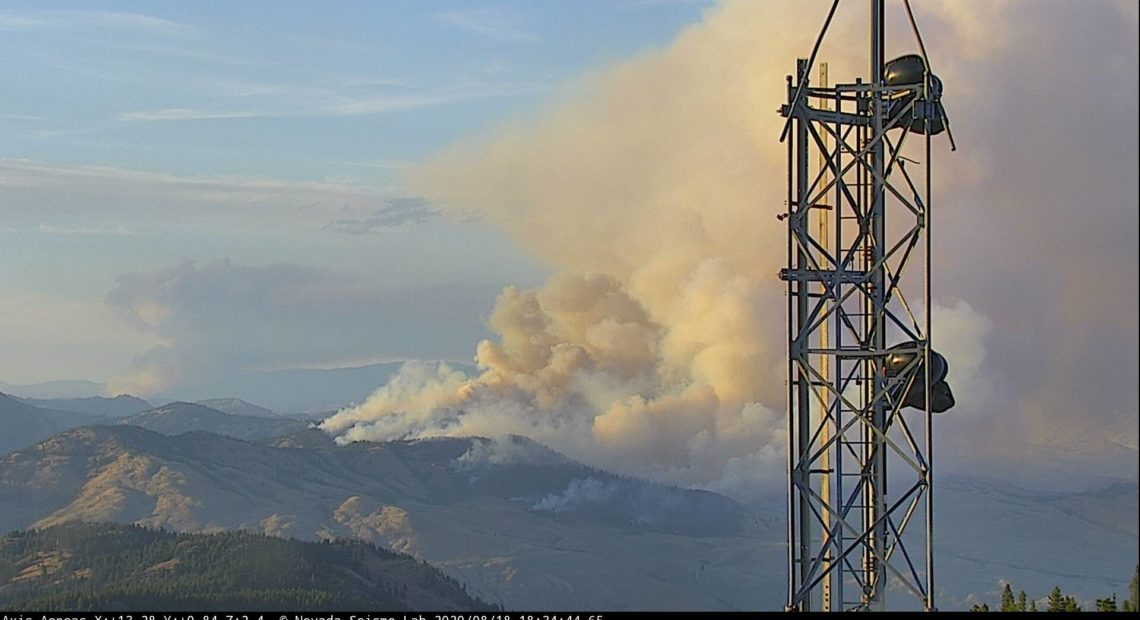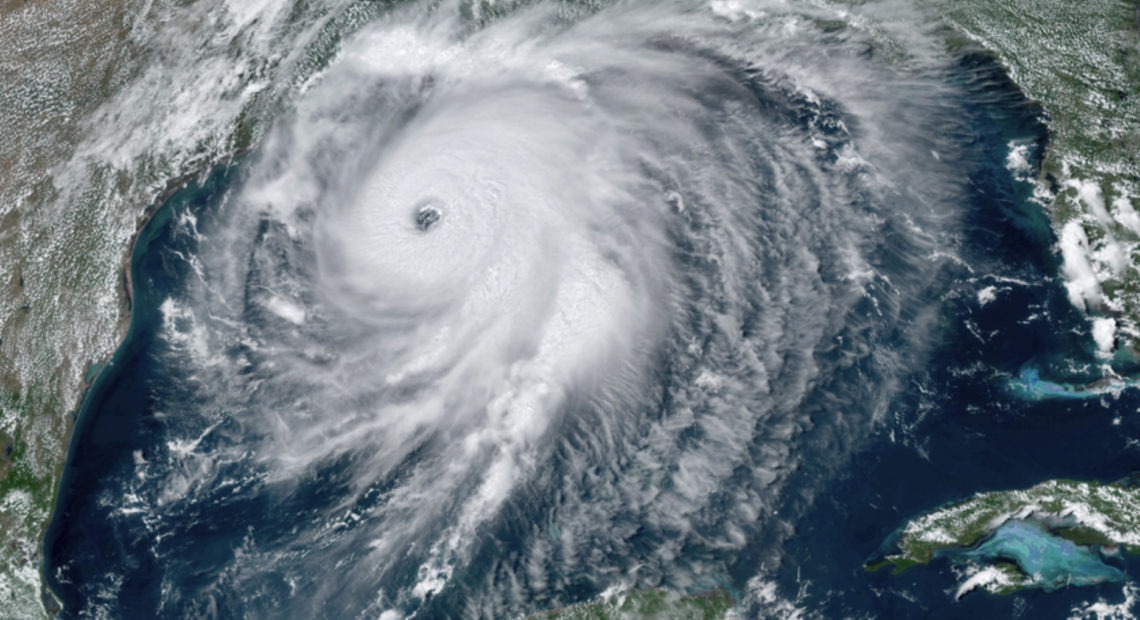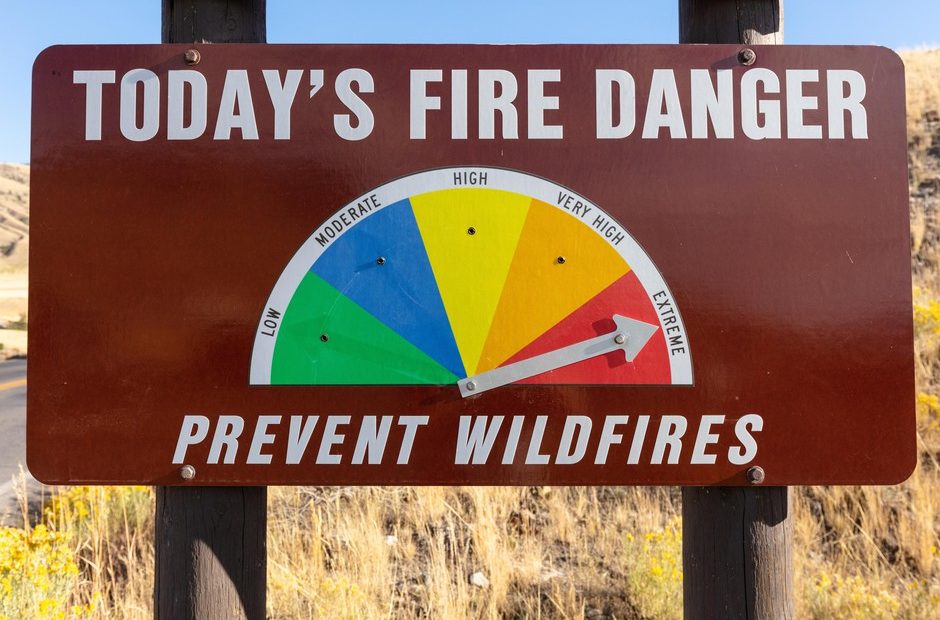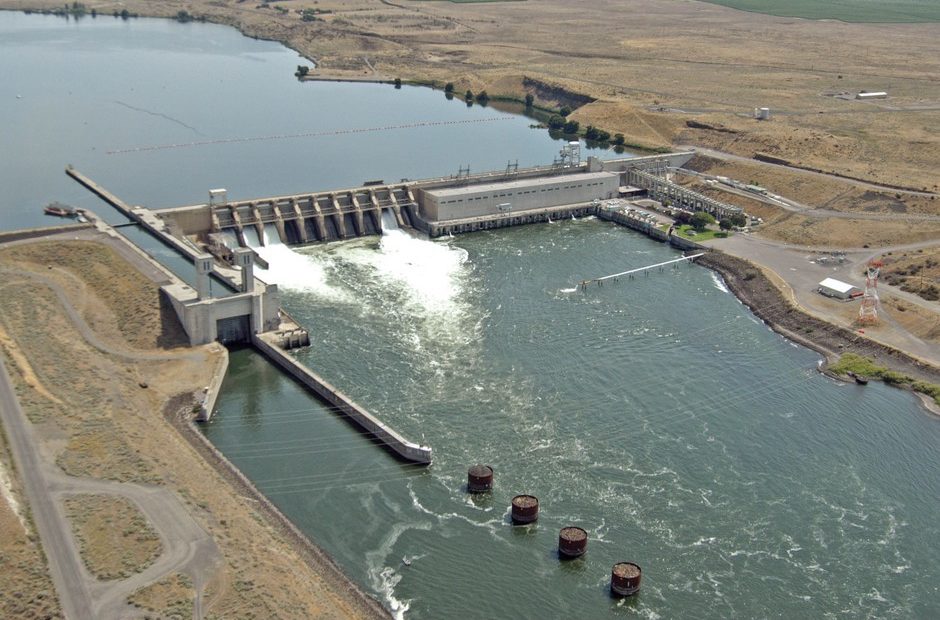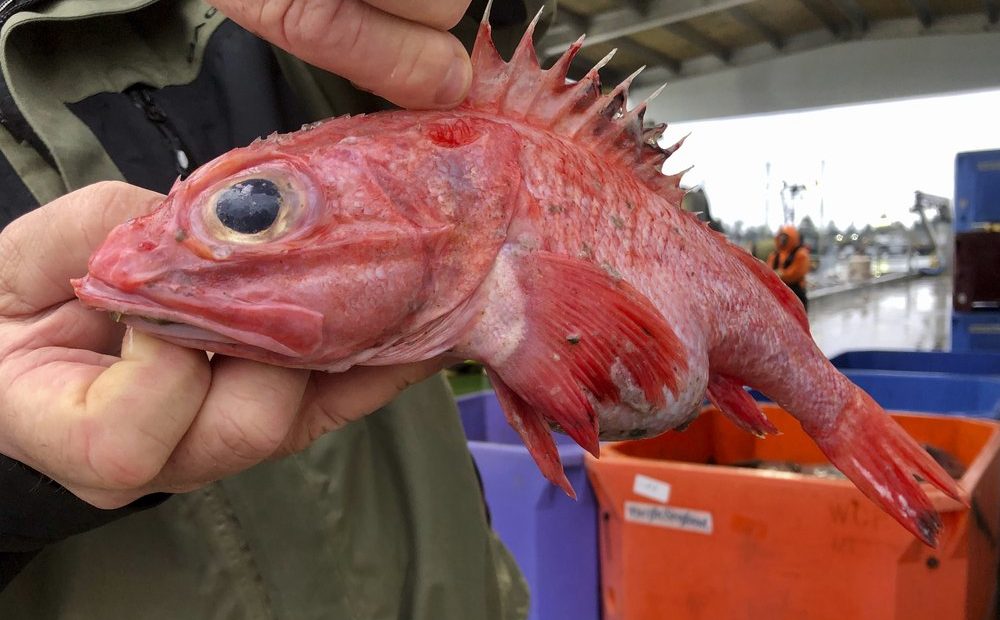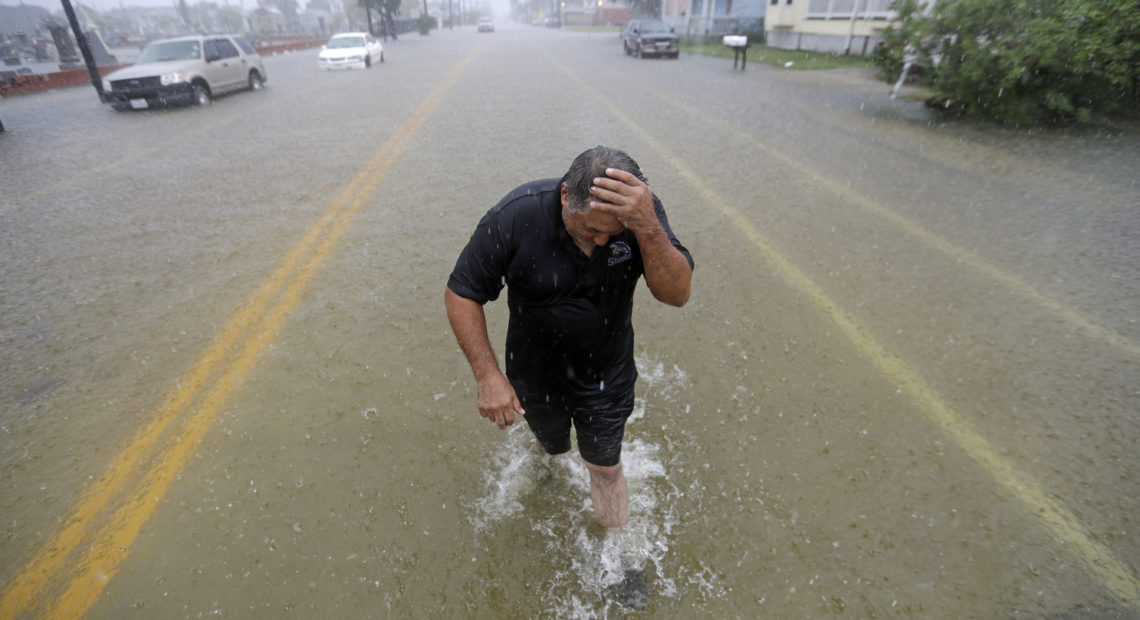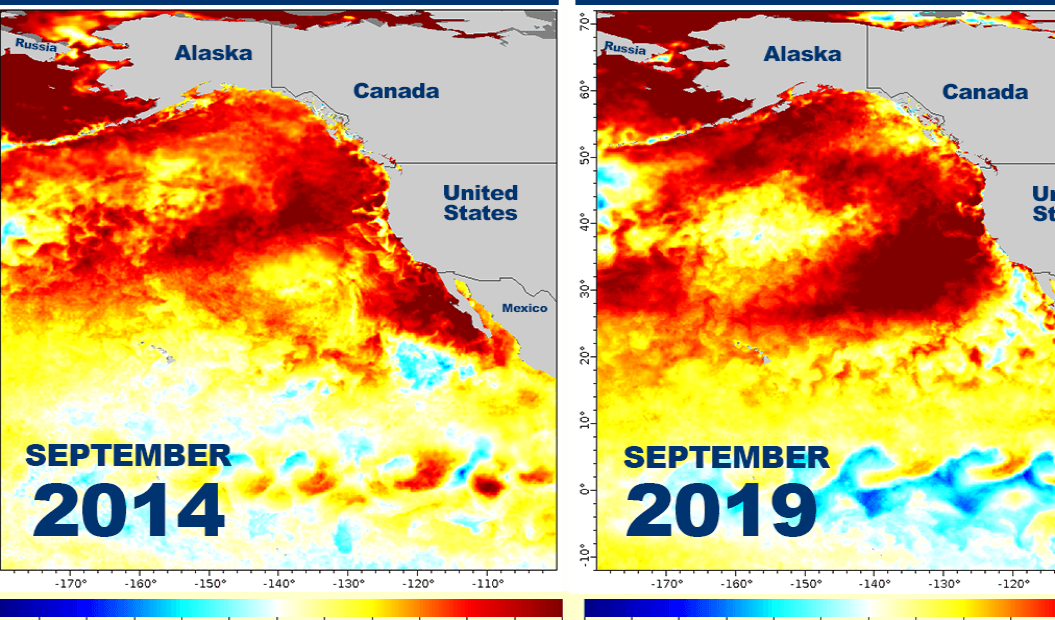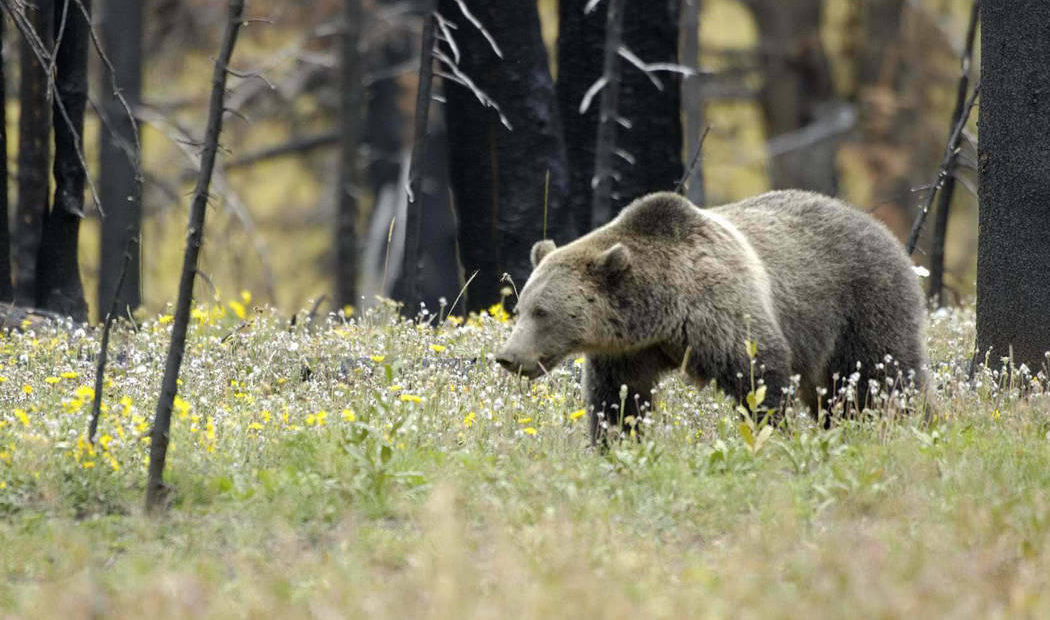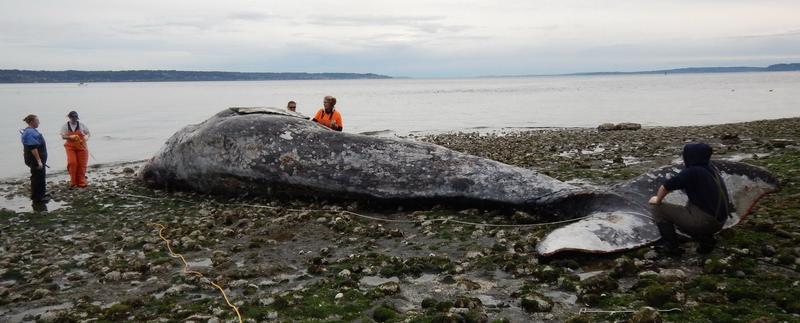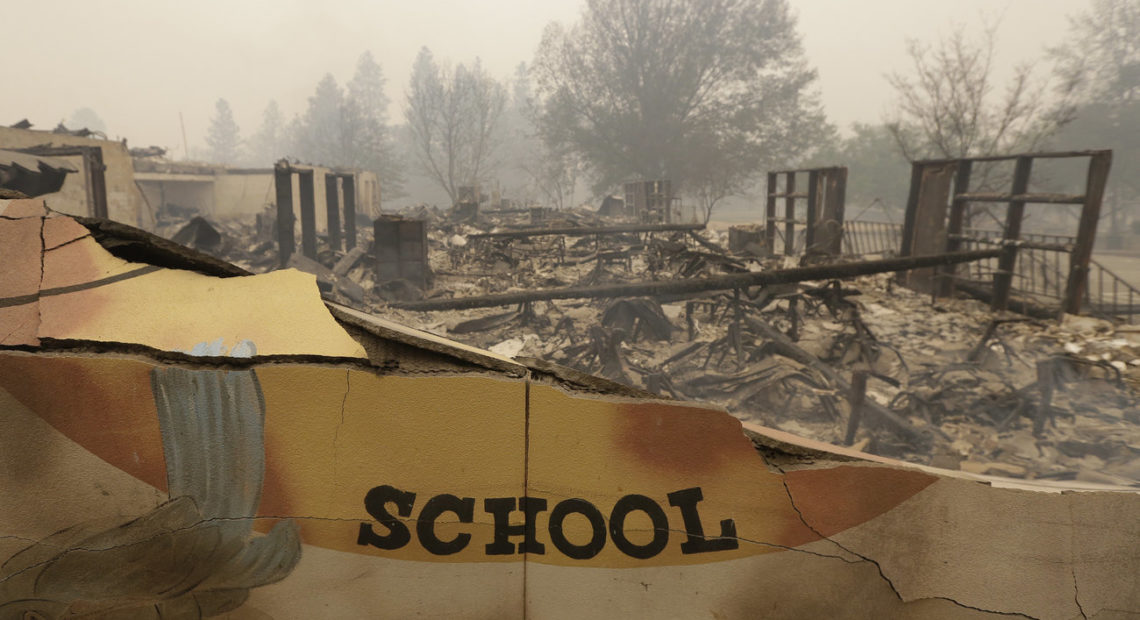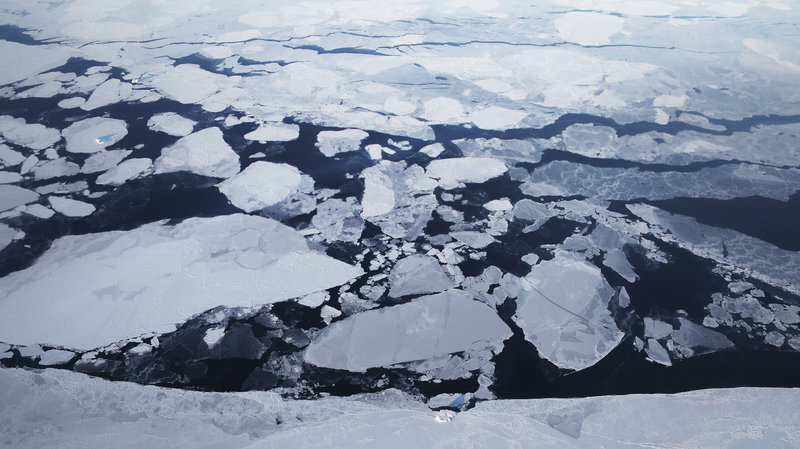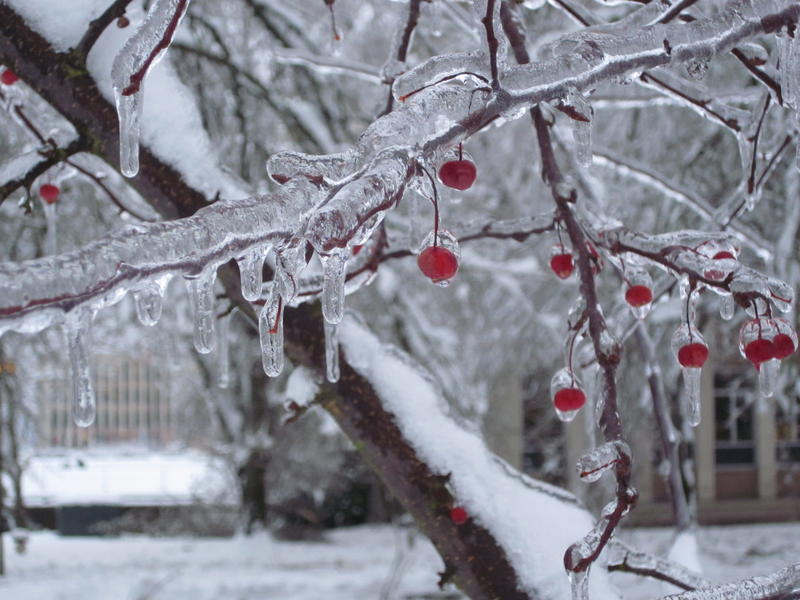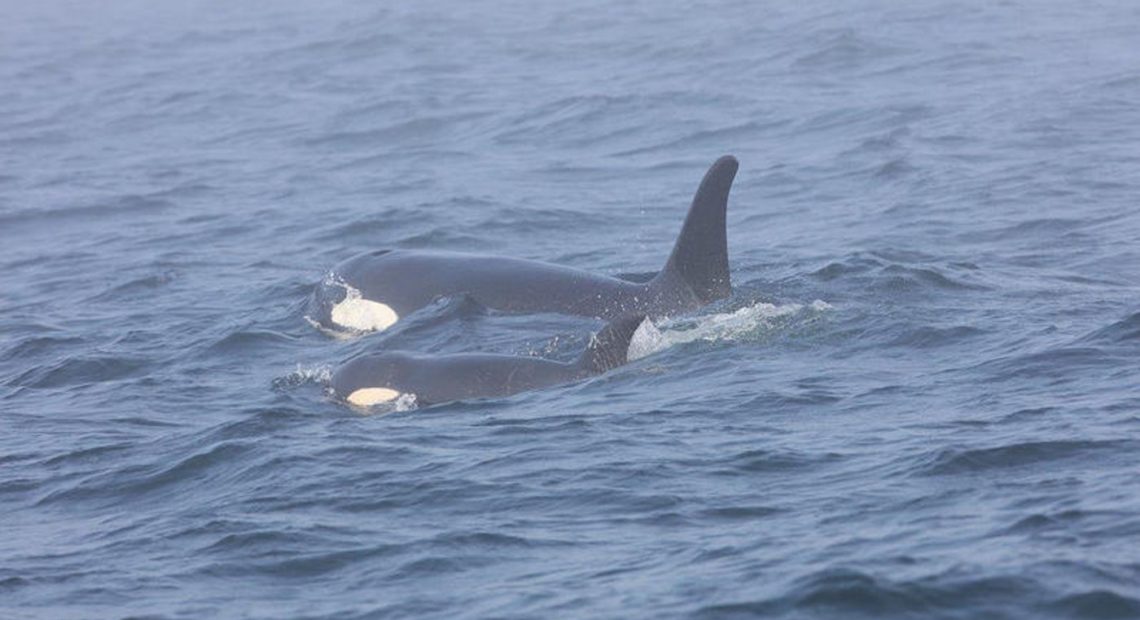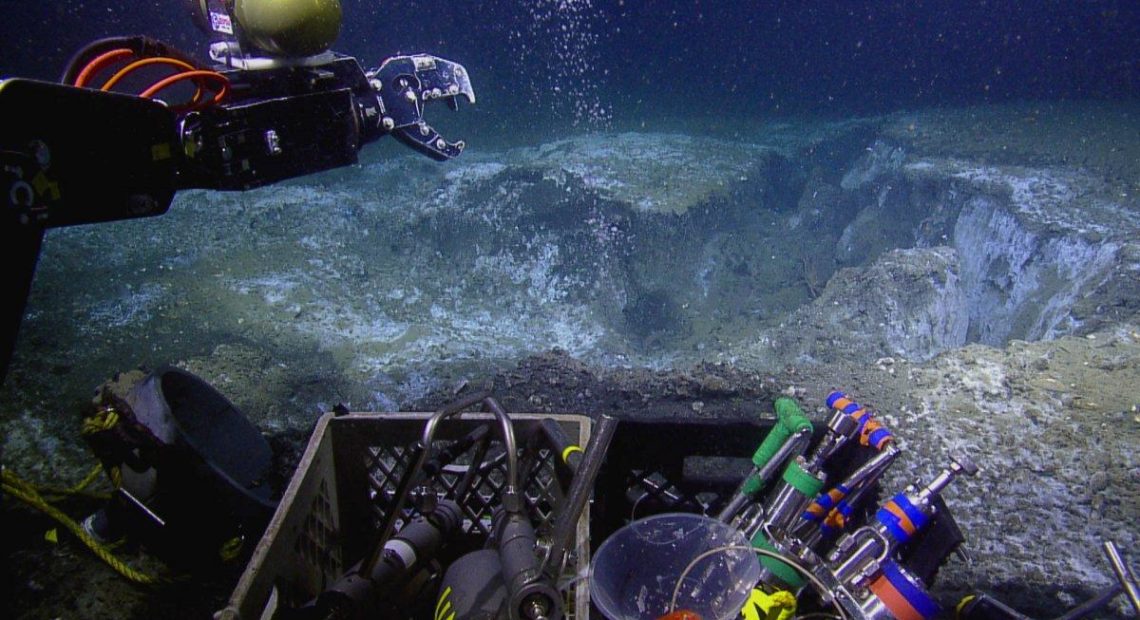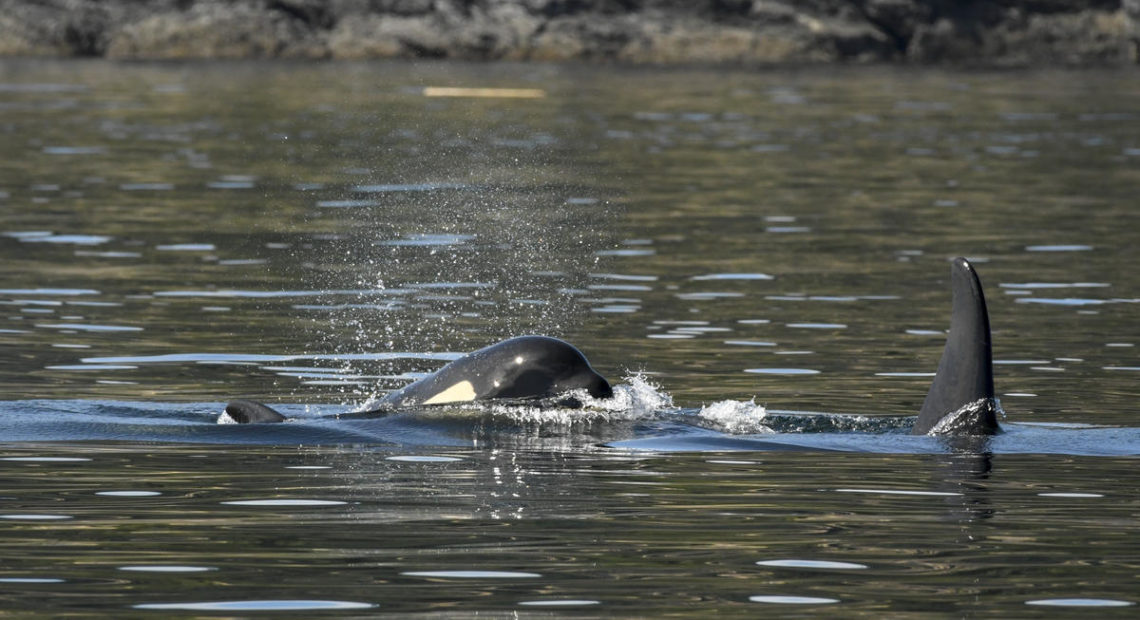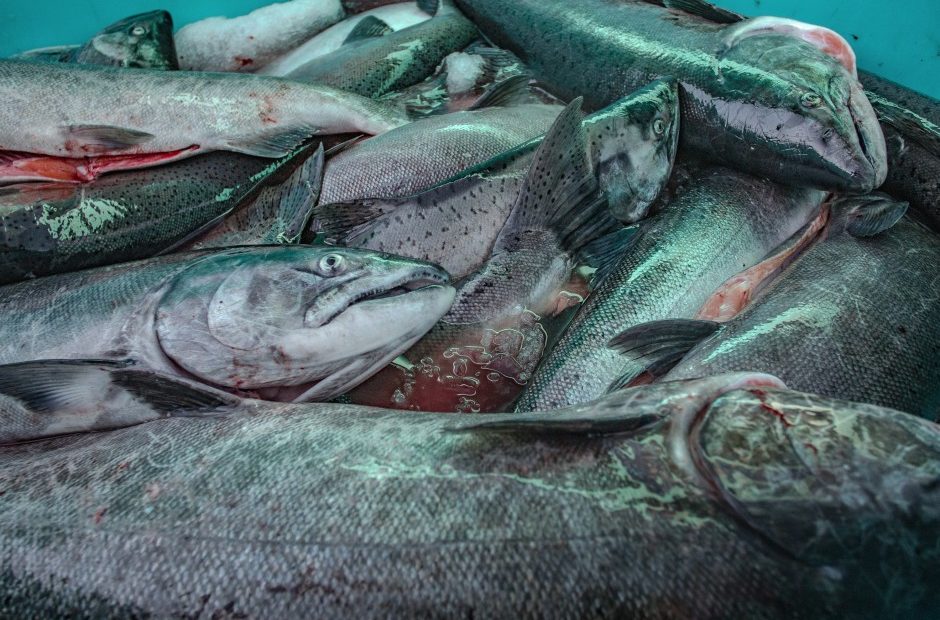NOAA biologist Brian Burke says mixed ocean conditions may lead to average salmon runs, but climate change is disrupting ecosystems—making continued research critical.Read More
Lawmakers are allocating over $6 billion this fiscal year to support the Department of the Interior and the United States Forest Service in wildfire response.
It’s an increase of 14% from the last year’s funding, and will support wildfire suppression, operations and a new research hub to aid fire management. This fiscal year, the forest service will see an increase of Read More
Breaching the Snake River dams is one major way to protect salmon, according to a final federal report announced Friday on salmon and steelhead recovery in the Columbia River Basin.Read More
Part 1: To Unravel Some Of The Ocean’s Mysteries, Scientists Head To Sea At least twice a year, scientists board the Bell M. Shimada, a National Oceanic and Atmospheric Administration […]Read More
The Bell M. Shimada is designed to gather scientific information. But the collaborative effort of the crew and officers makes scientific endeavors at sea possible.Read More
At least twice a year, a team of scientists on NOAA's research vessel Bell M. Shimada survey waters along the Washington and Oregon coast.Read More
The place where salmon spend most of their lives also is the place scientists know the least about: the ocean.Read More
Research photos taken with a drone show multiple killer whales are close to giving birth in one of the Pacific Northwest's critically endangered pods. The late-stage pregnancies stirred excitement among whale watchers -- and also renewed worries about the availability of adequate food supply for the mothers and babies.Read More
The Texas blackout is another reminder that more frequent, climate-driven extreme weather puts stress on the country's electricity grid. It came just months after outages in California aimed at preventing wildfires. Compounding this, electricity likely will be even more important in coming years amid a push to electrify cars and homes to reduce greenhouse gas emissions. Read More
The Northwest could see a cooler and wetter winter this season, according to climate outlook models. Forecasters say it’s likely that a recently developed La Niña weather pattern in the Pacific Ocean will continue. That should lead to above average precipitation in Washington, Oregon and Idaho.Read More
The derecho, which raced through the Midwest and focused its attention on Iowa, led to $7.5 billion in damage. That's more expensive than some hurricanes.Read More
There's only been one other year – 2005 – that Greek names have been needed. The National Hurricane Center on Friday announced storms called Alpha and Beta have formed in the Atlantic.Read More
David Legates, a professor whose research has been supported by fossil fuel companies, has been hired for a top position at the federal agency that oversees weather and climate forecasting.Read More
A dry cold front is expected to push into central and eastern Washington this weekend, bringing with it lots of wind from the north. That could fan the flames of fires, especially new starts that are just taking off. Winds could reach 15 to 25 miles per hour, with gusts around 40 miles per hour.Read More
Hurricane Laura rapidly intensified before it made landfall. Abnormally hot water in the Gulf of Mexico helped it gain power.Read More
July started off cool, which lowered wildfire risks in Washington and Oregon. But a new outlook shows excessive heat and a lack of precipitation have helped to dry out fuels in southern and central Oregon and central Washington. In those areas that have been dealing with drought, the land is ready to burn.Read More
Debates have dragged on for decades about whether to remove or alter the four dams. The Army Corps, Bureau of Reclamation and Bonneville Power Administration received almost 59,000 comments on the draft EIS this spring. The agencies are expected to finalize this plan by Sept. 30.Read More
After years of fear and uncertainty, bottom trawler fishermen — those who use nets to scoop up rockfish, bocaccio, sole, Pacific Ocean perch and other deep-dwelling fish — are making a comeback here, reinventing themselves as a sustainable industry less than two decades after authorities closed huge stretches of the Pacific Ocean because of the species’ depletion.Read More
Texas Gov. Greg Abbott has declared a state of disaster in 13 counties. Some parts of southeast Texas could see rain totals of 30 to 40 inches through Friday, the National Weather Service says.Read More
It "was not based on science but on external factors including reputation and appearance, or simply put, political," the agency's acting chief scientist wrote. Read More
Scientists have detected a marine heat wave off the West Coast that they say is reminiscent of the massive stretch of warm water nicknamed “the Blob” in 2014-15.Read More
What is the cost to the economy when an animal is listed as an endangered species? The Trump administration could soon start to publicize that calculation, along with the cost and benefits of categorizing an animal that way, under new rules it finalized earlier this month.Read More
The peak stranding time for gray whales in the Pacific Northwest is normally April, May and June. But the federal agency NOAA Fisheries has already logged nine dead whales washed ashore in Washington and one in Oregon. That's on top of 21 strandings on California beaches since the beginning of the year.Read More
The earth's climate has been warming for decades now. But 2018 brought several major new and markedly more precise reports from scientists about what climate change is doing to the weather and how dire they expect the consequences to be.Read More
The Arctic has experienced the "most unprecedented transition in history" in terms of warming temperatures and melting ice, and those changes may be the cause of extreme weather around the globe, according to the National Oceanic and Atmospheric Administration's 2018 Arctic Report Card.Read More
If the long-range forecast from the National Weather Service is right, we have a mild winter ahead of us.Read More
Officials in Canada and the U.S. are hatching a plan to temporarily capture and treat an emaciated orca. The young whale known as J-50 hasn't been spotted in nearly a week and could already be dead.Read More
Ocean researchers have found nearly 1,000 methane seep sites along the continental shelf of the Pacific Northwest. The bubble streams could be a sign of offshore energy potential, represent a greenhouse gas threat — or be neither of those things at all.Read More
An emaciated, four-year-old Puget Sound orca is drawing alarm. Whale scientists and the federal agency NOAA are weighing what it means to provide food and medicine to this endangered orca. The declining health of the orca has become apparent as it swims and feeds in the border waters between Washington and British Columbia.Read More
Ocean conditions off the Pacific Northwest seem to be returning to normal after a three-year spike in water temperature. It’s promising long-term news for fishermen who are looking ahead in the short term to yet another year of low salmon returns.Read More

